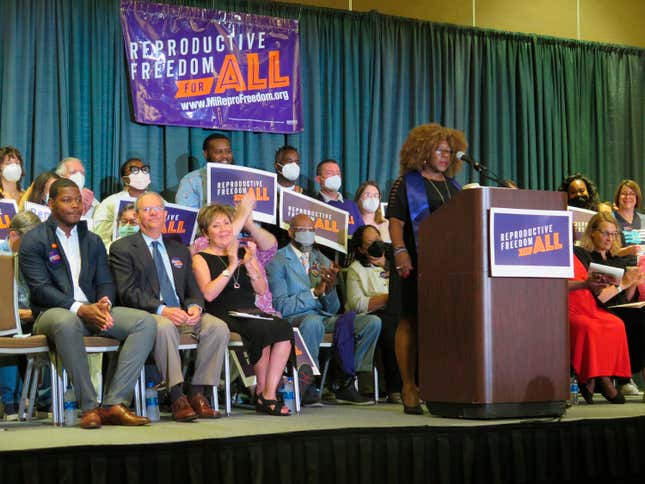
On Friday, a judge in Michigan stopped county prosecutors from enacting the state’s ban on abortion—one that has been in place since 1931—for the immediate future. The ruling occurred after two days of testimony from abortion providers and experts as well as Michigan’s chief medical officers.
Earlier this month, the state Court of Appeals explained that county prosecutors were not covered by a May order and could possibly impose the prohibition after the reversal of Roe v. Wade by the Supreme Court.
During his decision, Oakland County Judge Jacob Cunningham stated: “The harm to the body of women and people capable of pregnancy in not issuing the injunction could not be more real, clear, present and dangerous to the court.”
Cunningham filed a restraining order against county prosecutors just hours after the Aug. 1 appeals court decision and following a request from a legal team representing Democratic Gov. Gretchen Whitmer.
David Kallman, a lawyer representing two Republican county prosecutors, shared that an appeal is pending. Cunningham listened to arguments Wednesday and Thursday in Pontiac before granting the preliminary injunction, which is expected to keep abortion legal throughout the state until the Michigan Supreme Court or voters could decide in the fall.
Cunningham heard arguments Wednesday and Thursday in Pontiac before granting the preliminary injunction, which should keep abortion legal throughout the state until the Michigan Supreme Court or voters decide in the fall.
The state Court of Appeals ultimately said that the preliminary injunction only applied to the attorney general’s office. In other words, providers could be charged with a felony by some county prosecutors.
The legal team representing Whitmer and Democratic prosecutors said that allowing county prosecutors to decide whether to enforce the 1931 ban would force providers to stop all abortion services.

